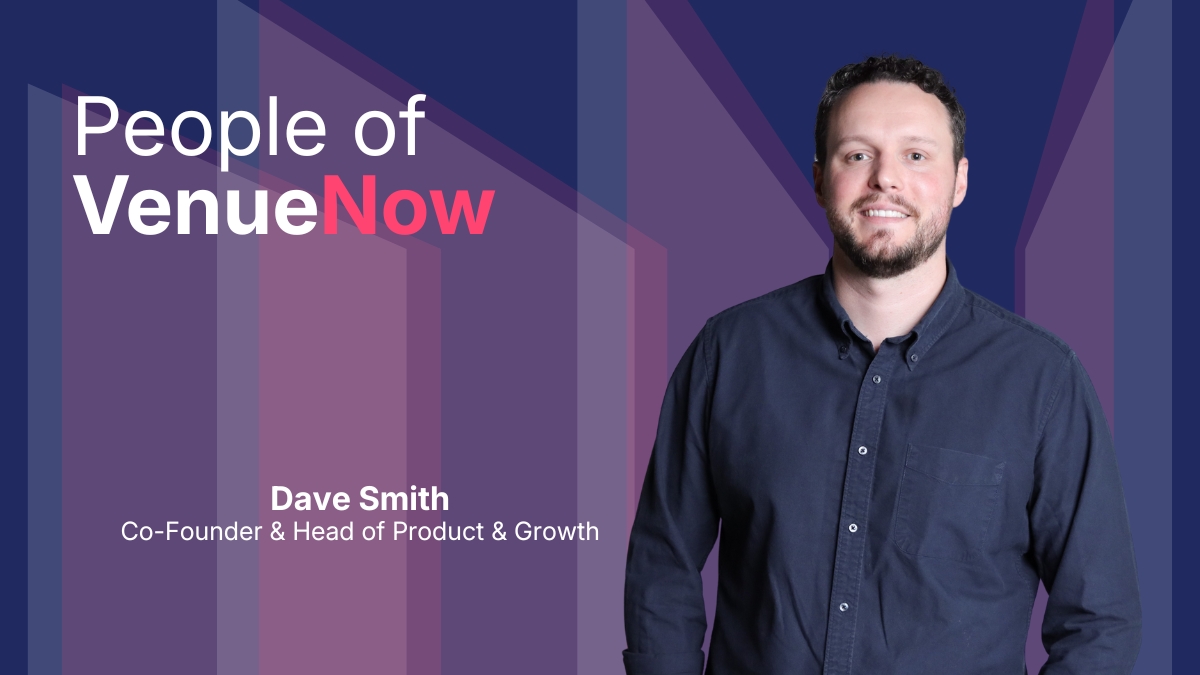
Written by: Cara Tirona
December 5, 2024
As the new year approaches, it's time to reflect on past events and set fresh goals for the upcoming year. For event planners, 2025 offers a unique opportunity to innovate, optimise, and achieve new heights in event management. Whether you're planning corporate events, social gatherings, or large-scale conferences, establishing clear and strategic goals is essential for success. In this blog, we’ll explore key event planning strategies for 2025, offering insights and tips to help you set effective New Year resolutions that will elevate your event planning game.
Table of Contents
- Strategic Event Planning 2025: A Blueprint for Success
- Event Planning Goals: How to Set and Achieve Them in 2025
- Define Your Objectives
- Break Goals Down into Actionable Steps
- Monitor Progress and Adjust as Needed
- Track Key Performance Indicators (KPIs)
- Be Flexible and Adapt
- Conduct Post-Event Analysis
- Review Financial Performance
- Evaluate Your Goal Achievement
- Identify Successes and Shortcomings
- Adjust Future Goals Based on Insights
- Successful Event Planning Resolutions: Tips for Staying on Track
- Conclusion
Strategic Event Planning 2025: A Blueprint for Success
2025 is set to bring new challenges and opportunities to the event planning industry. To stay ahead, it's crucial to develop a strategic plan that aligns with your goals for the year. To create a robust strategic plan for 2025, consider the following steps:
Conduct a Comprehensive SWOT Analysis
Begin by evaluating your Strengths, Weaknesses, Opportunities, and Threats (SWOT). Understanding your current position will help you identify areas for improvement and leverage strengths in competitive situations. For example, if you excel in digital marketing, you can focus on enhancing your online event promotion strategies.
Set SMART Goals
Once you've completed your SWOT analysis, set specific, measurable, achievable, relevant, and time-bound (SMART) goals for the year. Aim for objectives like increasing attendance by a certain percentage, reducing costs through efficiency, or enhancing attendee engagement through interactive technologies. For instance, you might set a goal to incorporate at least three new engagement tools in your events throughout the year.

Embrace Technology Innovations
2025 is predicted to be a turning point for technology in event planning. Embrace innovations like artificial intelligence and augmented reality to enhance event experiences. Utilise event management software for seamless registration processes, real-time analytics, and attendee engagement. Start exploring and incorporating these technologies into your planning to stay ahead of the curve.
Leverage Data Analytics for Informed Decisions
In today's data-driven world, leveraging analytics is crucial for effective event planning. Gather and analyse data from past events to gain insights into attendee behaviour, preferences, and engagement levels. Use this information to tailor future events to meet your audience's expectations and improve overall experiences. Setting up metrics to evaluate the success of events will help you understand what worked and what didn’t, enabling you to make informed decisions moving forward.
Prioritise Sustainability and Ethical Practices
As climate awareness grows, so does the demand for sustainability in event planning. In 2025, prioritise eco-friendly practices by reducing waste, sourcing local materials, and considering virtual or hybrid events to minimise travel-related emissions. Set goals to incorporate sustainable initiatives, such as zero-waste events or carbon offset policies, and communicate these efforts to your attendees. By promoting sustainability, you not only contribute to a healthier planet but also resonate with a growing audience that values companies with ethical mindsets.
Cultivate Personalisation for Attendees
Personalisation is key to enhancing the attendee experience. In 2025, aim to create tailored experiences that cater to the individual needs and preferences of your attendees. This can be achieved through segmented marketing efforts, personalised communication, and customised event agendas. For example, utilise attendee data to offer personalised itineraries based on their interests, roles, and previous interactions with your brand.

Long-term Goals vs Short-term Goals
When planning events, it is essential to strike a balance between long-term and short-term goals. Each type of goal serves a distinct purpose and plays a vital role in shaping your overall event strategy.
Short-term Goals: Quick Wins
Short-term goals are tactical objectives that can be achieved within a few months or during a specific event. These might include increasing social media engagement, boosting event registration numbers, or executing particular promotional campaigns leading up to your event. By focusing on short-term goals, you can quickly gauge the effectiveness of your strategies and adjust in real-time to maximise results.
To set effective short-term goals, consider implementing SMART criteria – specific, measurable, achievable, relevant, and time-bound objectives. For instance, instead of aiming to increase registrations "a lot," specify a target such as "increase registrations by 20% within the next three months." This clarity not only aids tracking but also motivates your team to achieve the goal.
Long-term Goals: Vision and Growth
Conversely, long-term goals offer a vision for the future of your event planning initiatives. These can encompass a broader strategy such as building brand awareness, establishing lasting partnerships within the industry, or creating a robust community of loyal attendees. It is essential for event planners to think ahead and envision where they want their brand to be in the coming years.
One of the most vital long-term goals is enhancing brand visibility. A strong brand presence builds credibility and fosters trust among your audience. To achieve this, event planners should focus on producing high-quality, memorable events that align with their brand values. Utilise innovative marketing strategies, such as influencer collaborations and content marketing, to consistently promote your brand before, during, and after events. Ensure that your events reflect your brand’s identity, making a lasting impression on attendees and encouraging them to become ambassadors for your brand.
Event Planning Goals: How to Set and Achieve Them in 2025
Setting clear and achievable goals is the first step toward successful event planning. Here’s how you can define and accomplish your goals for 2025.
Define Your Objectives
Start by identifying what you want to achieve with your events in 2025. Your objectives could range from increasing attendee numbers, enhancing engagement, boosting social media presence, or achieving specific revenue targets. Ensure that your goals are SMART: Specific, Measurable, Achievable, Relevant, and Time-bound. For instance, rather than simply stating, "We want more attendees," detail it as "We aim to increase attendance by 30% compared to 2024 by promoting our event through targeted social media campaigns and partnerships."

Break Goals Down into Actionable Steps
Once your objectives are defined, break them down into smaller, actionable steps. This chunking process makes your goals more manageable and less overwhelming. For example, if your goal is to enhance attendee engagement by 20%, outline specific tactics:
- Conduct a pre-event survey to gather input on desired content and activities.
- Implement interactive technologies (like live polls or Q&A sessions) during the event.
- Follow up after the event to gather feedback and gauge engagement levels.
By mapping out these steps, you create a clear pathway from goal setting to execution.
Monitor Progress and Adjust as Needed
Setting a goal is just the beginning; it’s essential to continually monitor your progress and make adjustments as necessary. Regular check-ins can help ensure that you’re on track to meet your objectives and identify any potential roadblocks early on.
Track Key Performance Indicators (KPIs)
Establishing KPIs that align with your goals can provide valuable insights into your event’s performance. For instance, if your goal is to enhance attendee engagement, track metrics such as session attendance rates, participation in interactive sessions, and post-event survey responses. Use tools like analytics software and engagement platforms to gather this data seamlessly. Regularly reviewing these KPIs will allow you to see where you’re excelling and where there might be opportunities for improvement.
Be Flexible and Adapt
The landscape of event planning can be unpredictable, which is why flexibility is key. If your initial strategies aren’t yielding the expected results, don’t hesitate to pivot your approach. For example, if you notice that a particular promotion tactic isn’t attracting attendees, consider exploring alternative channels or messaging. Being adaptable allows you to respond to changes in attendee behaviour, industry trends, or even unforeseen circumstances, ensuring your event remains relevant and appealing.

Conduct Post-Event Analysis
Once your event concludes, it’s crucial to conduct a thorough analysis of the overall experience and outcomes. This step is vital for understanding what worked well and what areas need improvement for future events. Here are some effective ways to conduct a post-event analysis:
Gather Feedback from Participants
A post-event survey is a powerful tool to capture participant opinions and insights. Ask questions that assess various aspects of the event, including the quality of speakers, the relevance of content, venue logistics, and overall attendee satisfaction. Consider incorporating open-ended questions, which can provide deeper insights into the attendees' experiences.
The Importance of Event Follow-Up
Analyse Registration and Attendance Data
Take the time to analyse data from your registration and attendance records. Understanding who attended (and who didn't) can help you tailor future events to align more closely with your target audience. Look for trends such as the demographics of attendees, drop-off rates during the registration process, and the effectiveness of different marketing channels.
Review Financial Performance
Set a clear criterion for measuring the financial success of your event. Beyond just focusing on profit or loss, evaluate your budget against actual expenses and revenue. Are there specific areas where costs exceeded expectations? Did certain sponsorships or ticket sales outperform others? This analysis will help you better plan your budget for future events.
Evaluate Your Goal Achievement
Return to the goals you set at the beginning of your event planning process. Reflect on each goal and determine what percentage of those objectives were met. By categorising the goals into measurable outcomes, such as audience size, engagement levels, and revenue targets, you can assess your overall performance.
Identify Successes and Shortcomings
When evaluating your goals, it’s essential to recognise both your successes and shortcomings. Celebrate the areas where you exceeded your expectations—whether it was a higher-than-anticipated turnout or exceptional feedback on a keynote speaker. Conversely, take note of any goals that weren't met and analyse why that happened. This might involve consulting your team or reviewing feedback to uncover underlying issues.
Adjust Future Goals Based on Insights
Utilise the insights gained from evaluating your goal achievement to refine your future objectives. Consider whether your initial goals were realistic based on your resources, timeframe, and external factors. For the upcoming year, set new goals that challenge your team while remaining attainable. Use the SMART criteria (Specific, Measurable, Achievable, Relevant, Time-bound) as a guideline to craft clear and actionable goals that will drive your planning efforts forward.

Successful Event Planning Resolutions: Tips for Staying on Track
Setting resolutions is easy, but staying on track is where the challenge lies. Here are some tips to help you keep your event-planning resolutions throughout the year.
1. Create a Detailed Plan
To turn resolutions into reality, it's vital to have a concrete action plan in place. Break down your overarching goals into smaller, actionable steps. This might involve scheduling specific tasks, determining deadlines, and allocating resources. Using project management tools can also streamline this process, allowing you to visualise your progress and identify potential roadblocks.
2. Monitor Progress Regularly
Set up a regular check-in schedule to evaluate how your event planning efforts stack up against your resolutions. This could take the form of weekly meetings or monthly reviews, where you discuss achievements, challenges, and adjusting strategies if necessary. Regular monitoring not only promotes accountability but also allows for timely adjustments to keep you on course.
3. Stay Flexible and Adaptable
The world of event planning is often unpredictable. While it’s important to stick to your resolutions, each event you plan may present unique challenges and opportunities that require you to adapt. Embrace flexibility by being open to modifying your goals or methods if needed. This adaptability will help you navigate unexpected hurdles and leverage new possibilities. For instance, if a key vendor falls through or new technology emerges that could enhance your event, being willing to pivot can ultimately elevate your outcomes.
4. Celebrate Small Wins
Recognising and celebrating small achievements along the way is crucial for maintaining motivation. Each milestone reached is a testament to the hard work you and your team have put in. Celebrate these wins, whether it's successfully completing a planning phase, securing a venue, or receiving positive feedback from early promotional efforts. Celebrations can foster a positive team environment and reinforce the dedication required to achieve your larger goals.
5. Network and Seek Feedback
Building connections within the event planning community can provide invaluable insights and fresh perspectives. Attend industry workshops, engage in online forums, or participate in local networking events to share experiences and learn best practices. Additionally, don’t shy away from seeking feedback from colleagues or clients about your events. Constructive criticism can highlight areas of improvement and inspire new strategies, enhancing your planning skills and outcomes for the following year.
Conclusion
Setting New Year goals and resolutions is an essential part of successful event planning in 2025. By adopting the right strategies, staying informed about industry trends, and aligning your goals with broader objectives, you can ensure that your events are not only successful but also impactful.
As you plan your events for 2025, consider utilising VenueNow’s platform to find and book the perfect venue for your needs. With advanced search filters, a free venue finding service, and expert advice from Venue Consultants, VenueNow can help you achieve your event planning goals with ease.
Looking for an event venue to hire?
VenueNow has you covered with over 2,000 venues across Australia ranging from large event spaces to small meeting rooms. Find your perfect venue for hire faster than anywhere else.
Follow us on social media to stay up to date with the latest news
Customers
Want to get in contact?
Call our support team on 1300 647 488 during business hours AEST.
Follow Us
© Copyright VenueNow 2026 | SPARE GROUP PTY LTD | ABN 22 607 830 302











